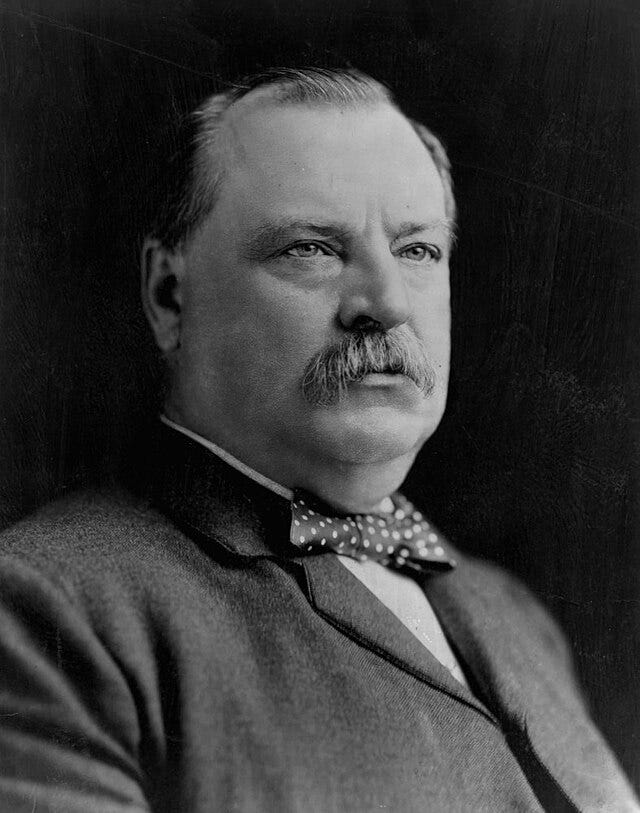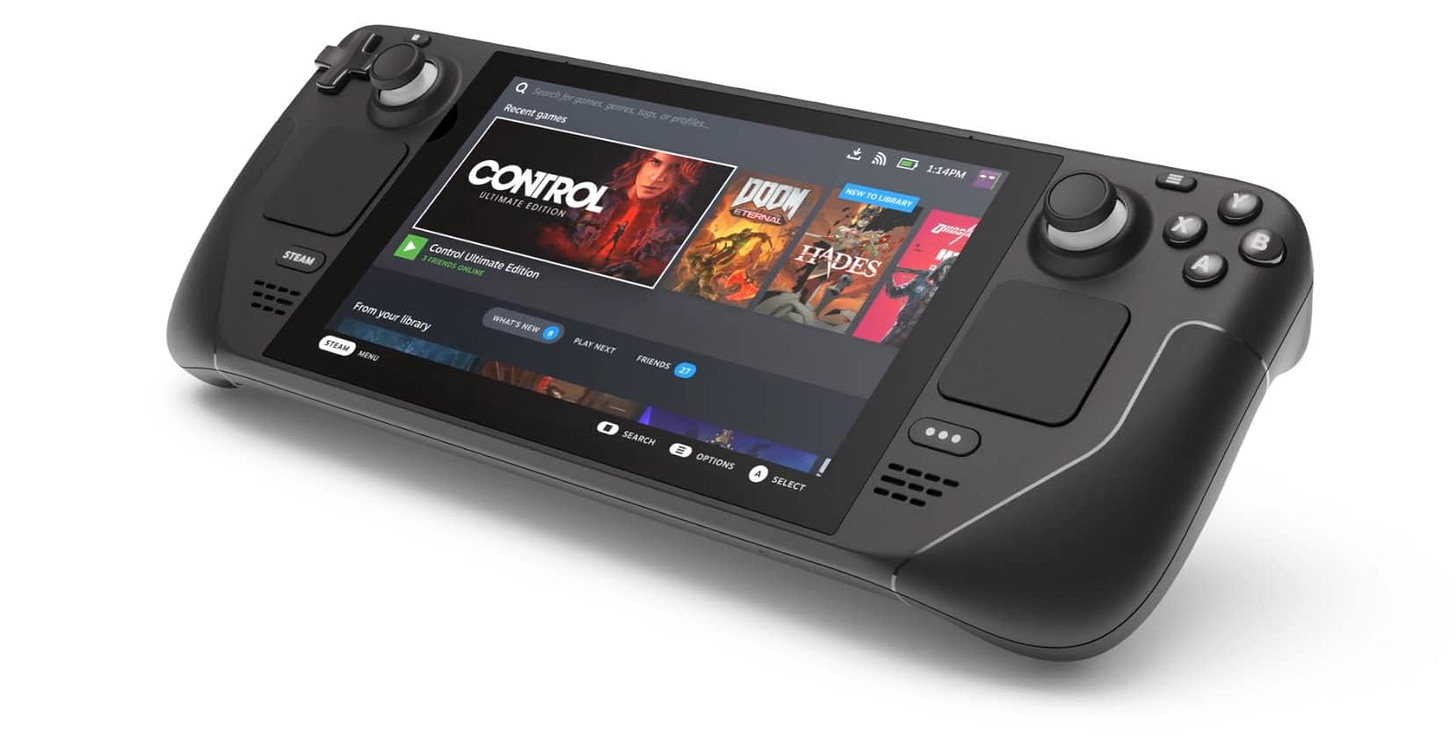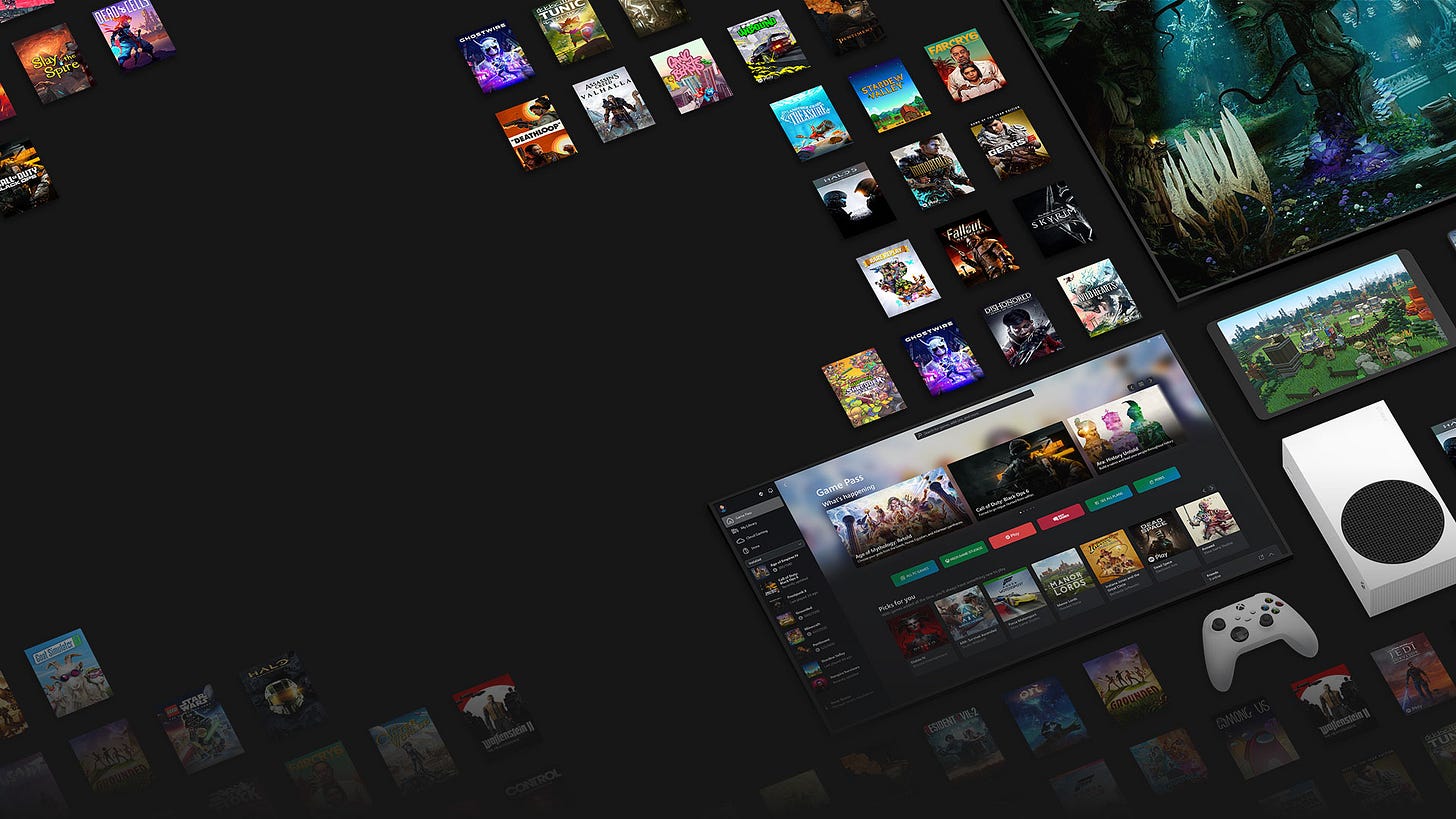Gamers have been getting hit with news of rising costs from hardware to games, the weird semi-third-party status of Xbox, and the onslaught of gaming media and developer layoffs. To say the industry is in a healthy place would be a lie. I would argue that saying the industry is crashing is also technically a lie. The industry is still growing and making money. The problem is that it doesn’t feel like it. Outside factors like high inflation, trade wars, and semiconductor costs don’t help, but we also have rising console and software prices. It’s had a lot of gamers feeling like they’re being priced out of their favorite hobby. So what the hell is going on, how do we fix it, who do we blame, and what are the long-term impacts to the industry?
Inflation
Inflation has been a topic I feel I’ve been debating with numerous people since it became a problem in 2022. As a history nerd and someone who follows politics, I saw it become something to attack President Biden over. I would try to explain to people what inflation is, how it’s normal as long as it doesn’t get too high, and how high inflation is usually due to outside factors that no President can control. We actually experienced slightly above-average inflation during the first year of the Great Recession, but everyone was too busy looking for jobs to notice. The last time we had abnormally high inflation similar to recent times was during the gas and oil shocks of the seventies and early eighties. The Presidents, much like Biden, got hammered for it even though it wasn’t something due to their policies. It didn’t matter your party or ideology, President Nixon was dealing with it just as Watergate hit. It was a nagging issue for Ford, it devoured the Carter administration and came close to preventing even the charismatic Reagan from a second term. It’s one of those things that sucks and everyone blames everyone for it. It finally subsided in the mid-eighties (just in time for Reagan’s re-election) thanks to the monetary policies of Paul Volcker, supported by both Carter and Reagan.
The current inflation is part of the long aftermath of the 2020 COVID-19 pandemic. The rest of the world, not just the United States, was getting it, and they were getting much worse than we were. In fact, the United States handled the 2022 inflation the best, and technically, inflation was back to normal by the start of 2024. Despite this, due to a mix of how long ago we went through this and the massive misinformation of social media, people were convinced inflation was still a problem. I remember explaining this to someone I know, and they literally got mad at me and said inflation doesn’t end until the prices are back to where they were. Mentally, I was screaming. That’s not how inflation works. The problem with inflation is that people got so used to the former prices that it can feel worse than it is now. I think many Americans will find out the hard way that prices don’t magically go back to 2019 standards just because the guy in charge at the time is back. Again, just like the seventies, this will hurt a few Presidents before we move on.
I explain all this to talk about the tricky and sometimes controversial point that gaming is cheaper than it was back in the day. Whenever this is brought up, you get comments from people who angrily think you’re trying to defend a billion-dollar company or tell them to shut up and sit down. This is not the case at all. I’m simply analyzing the data so you can better understand what it “felt” like to be a gamer back then, to today. Many of us were kids during the early years, so forget why our parents had to think before buying a game - it wasn’t just because they didn’t play games themselves. I attached an ad from about 1996 at the start of this section. If you look at those prices, they look so much better and cheaper than today. Let’s look at that.
First, the PlayStation console costs $199, but that’s about $400 in today’s value. It's still cheaper than a PS5, but around the new Xbox Series S level of pricing. The majority of the games here are an average of $47. Incredible deal, right? Well… adjusted for inflation, it's about $95. I want to point out that the cartridge-based games were more expensive, sitting at an average of about $110-$120 when they were released. Gaming was, and quite frankly, has always been an expensive hobby. I want to point out one last time that the point of this is NOT to defend or argue for you to shut up; it’s to understand what it was like back then compared to today. One last point, we didn’t need to pay for as much in the 90s. Today, we have subscriptions, phone bills, smart devices, internet, and more. You could argue you had more money left over to buy an expensive piece of tech compared to today, especially when tracking the weak rise in wages in the United States since the late seventies.
Tarriffs
Why did I put a picture of former President Grover Cleveland just now? I think similar echoes are going on right now, comparable to the Cleveland era of the United States. Much like America’s current President, Grover Cleveland served two non-consecutive terms in office. Unlike our current President, he won the popular vote in all three elections, losing one of the rare times the electoral college and popular vote didn’t match up. Cleveland’s first term wasn’t anything to write home about, as he came in as part of the “Bourbon Democrats”, a largely conservative northeastern bloc of the Democratic Party during the Gilded Age. However, Cleveland’s economy wasn’t too bad (outside of some severe wealth inequality), as the country had finally moved on from the painful Panic of 1873, a severe economic depression that started under President Ulysses S. Grant.
Like the current President, Cleveland was not a good person. More Presidential historians have become vocal recently about Cleveland’s scandals, including putting his mistress in an insane asylum to keep her away from his political ambitions and painting her as a horrible mother to his out-of-wedlock son. Cleveland also married a much younger woman as President, so young that he knew her father when she was a baby, and bought her a pram. Yeah… It’s bad. However, Cleveland wasn’t tweeting away and forming a dedicated set of cult like followers and a set of resistance haters, so he got away with his behavior during his term. After losing a close election to Benjamin Harrison, he vowed to return to the White House by winning a rematch in 1892 in another close one. The Democratic Party was in power solidly, and things were looking up for Cleveland. However, the same thing that helped Cleveland come in bit him back. Cleveland won his rematch partly due to the unpopular McKinley tariffs in 1890, which were protectionist. This triggered a severe recession and helped the Democrats and Cleveland. However, Cleveland sat back and ignored the inequality and the bank crash in his first year back, the devastating depression called the Panic of 1893. Everything became so expensive that the Republicans swept back in the midterms with a whopping 100+ seat swing - the biggest in U.S. midterm elections. Shortly after, with the Democratic Party being taken over by western populists and a new northeastern liberal wing emerging, Cleveland was prevented from running again. Ironically, the man who created the McKinley tariff, William McKinley, would become President in 1896.
That small history lesson is important to understand some of the grander things that indirectly affect the gaming industry. With President Donald Trump’s decision to impose the most significant tariff hike since Herbert Hoover and the most insane amount since the Cleveland era, everything is or is about to become much more expensive. This is an area I will defend the companies in. Ultimately, you need to make money to have a reason to sell your product. With China getting the worst tariffs, it makes sense why Microsoft is doing price hikes of $80-$100 for their Xbox consoles. The worst part is that, with the more critical needs also rising in costs, it will indirectly lead to lower game sales as gamers will have to sacrifice buying certain games so they can eat or have a warm place to sleep. Whether you like it or not, even the people who say they don't get involved in politics, politics is into you, as in these polices are happening. It's directly going to affect you, and that’s why your game console is getting so expensive.
Rant
Before I move on to the last two sections, I want to rant a bit on the part where I can criticize and hit back at the industry. First, with a look at these $80 games. It’s funny that these publishers lament that they are not meeting expectations and then turn around and hike the cost of games. This will lead to fewer customers who may wait for sales later or skip the game. It’s also funny that digital games, which are not subject to tariffs or store costs, are the same price as the physical copies. It’s also darkly hilarious that a multi-billion-dollar company like Microsoft can’t take a hit on the revenue for their hardware, even though that's how the industry has functioned. The company would EASILY make it up in their other sectors. These companies are indeed feeling the brunt of inflation and tariffs, but they are absolutely taking advantage of it for greedy reasons.
The Long-Term Impact
I’ve been predicting for a long time that the industry is about to change in big ways by the early 2030s. Thanks to gaming becoming more expensive, my personal theories of these changes will be fast-tracked. Brands and platforms have power, but it’s always consumers who choose to adjust to make their lives easier. So the first thing I expect is a decrease in new gamers for the rest of the decade. The growth in consumers in the industry will take a hit, specifically with the console, where I expect to see a sharp drop in sales. Ironically, the Switch 2 is starting to look cheaper right now, and I expect it to sell well still, though not to the level of its predecessor. I see mobile gaming getting a boost as parents will look at some of these console prices and cringe. Mobile gaming was already becoming a headache for the industry regarding how kids started playing. Still, these prices will only lead to more kids starting out playing mobile and tablet games.
Another significant change I see coming is the popularity of subscription services. Yes, I’m aware you don’t technically own your games, but that’s the last thing that will be on the mind of the typical everyday consumer. I love Disney and have a good chunk of Walt Disney movies on Blu-Ray, but I quit my collection for the ease of watching Disney films on Disney+. Cloud gaming will also get a boost, although I want to make it known that this will be something ten-plus years later. I’m an advocate for cloud gaming, but we’re still a decade away from it even entering a mainstream status. Handhelds could end up becoming the new modern entry into premium gaming. With rumors of Xbox and PlayStation also releasing handhelds and the slowly rising popularity of Steam Deck and more, some of these handhelds will be priced around what we used to see console prices at. In a way, they could become the new “consoles” of the industry. I don’t expect the console to go away, but there’s a chance they will become a niche thing for the most hardcore gamer. Another long-term impact could be fewer multi-ecosystem uses. In the 2010s, many dedicated gamers could feasibly own all of the big three, but now I think that’s no longer happening. I’m already planning to get the next Xbox/hybrid PC box with a Switch 2 - no plans for a PS6 at the current moment.
The last impact is my theory that indies will lead the way to a new creative era. Rather than repeat what I’ve written about this, I’ll post a link to my theory: The Coming Creative Era.
What Can I Do?
Okay, so we’re in a sucky time to be a gamer, and things aren’t going to get better magically. Consoles are becoming more expensive, and consumers may find a new way to play games. What can you do in the meantime as you navigate this transitional and difficult time in the industry? First, I highly suggest you ensure your first investment is in a brand you care about the most. If you care about Nintendo the most, pull the trigger on Switch 2. If you want PlayStation, get the PS5 or PS5 Pro. All in on Game Pass like I am? It’s pricey as hell now, but get an Xbox, and if you’re okay with the slight graphical hit, get the cheaper Series S, which is still a solid machine. If you mostly care about indies or don’t have any loyalty, check out the Steam Deck or wait a little while due to the rumors that a TV-like Steam hybrid PC console is supposedly coming.
For the game prices, if you can invest in a Game Pass or Ubisoft+, they have what you’re looking for. Game Pass (or PC Game Pass) alone will help you with access to some of the biggest games in the Xbox ecosystem. Nintendo fans are stuck with games that don’t get price drops outside of holiday sales, so either wait for those sales or think about your purchase and get the games you know you’ll love. For everyone else, it’s pretty much the same advice. Don’t let FOMO put you in a bad financial situation, and think before buying. Remember, for the more narrative games, you can experience them through YouTube and Let’s Plays. I know it’s not the same as playing, but it will help you greatly.
Closing Thoughts
Do not let yourself quit using this medium. The industry is going through a rough time; it happens in other places. Wrestling, my second love in fandoms, goes through roller coasters of booms and stagnation. This will pass one day. Until then, it’s time for gamers to be smart and think with their wallets. Focus on the ecosystem you love the most, and if you have the chance, get the next one later. Don’t feel pressured that you’re missing out on games just as they come out; your wallet and mental health will thank you later. Much like world news, the rest of this decade will be tough, but we will get through this. Focus on the games you’re most excited about, try out indie titles, be smart with your money, and help people out if you can. I believe in the phrase It’s darkest before dawn, and we will see that dawn again.
Be Nice to All







![Angery" Kirby [Super Smash Bros. (Wii U)] [Works In Progress] Angery" Kirby [Super Smash Bros. (Wii U)] [Works In Progress]](https://substackcdn.com/image/fetch/$s_!gm2k!,w_1456,c_limit,f_auto,q_auto:good,fl_progressive:steep/https%3A%2F%2Fsubstack-post-media.s3.amazonaws.com%2Fpublic%2Fimages%2F7011c01b-6eaa-42a4-831d-685276f4846e_800x450.jpeg)


The PlayStation consoles were my go to in each console cycle since the PS1. Sure, I had the other major consoles too, but Sony's hardware was my priority. But I think that streak has been broken since the PS5 era we're currently in. I was scheming a way to purchase the console last year. I reasoned that it took me 3 years to get the PS4 (and that was only after a person I followed on Twitter happened to post about a PS4 Pro deal on Rakuten).
So by 2024, the PS5 had been out for 4 years now and I wanted to get it as soon as possible while the PS6 is still a rumor. I wanted to feel like I got in on the PS5 while it was still relevant and got my monies worth. But I just couldn't justify the high price tag...even less so for the PS5 Pro. So at this point, I think my PS console streak is over. I'm looking to the Switch 2 now. And that's probably a purchase that's at least a year away for me with these prices.
For the longest time I was a console gamer starting with Atari all the way to PS4, with multiple systems in the same generation and sometimes multiples of the same system. That all changed during COVID at the height of the PS5 price bubble.
I was already subscribed to a service called Shadow, renting a virtual gaming PC which I used for a couple of games. I mainly still relied on the PS4. Cue PS5 and the absurd prices and a broken down (non-gaming) laptop and I decided to just get a gaming laptop and drop my Shadow subscription and PS5 ambitions.
I now love the fact that I’m exposed to MANY indies I would never have considered in the old days. Likewise the modding community even for the unlikeliest of games is surprising. To top it all off indies are quite cheap in general and I have been lucky to (legally) have access to a cheaper Steam region as of last year which made the move even better.
Indie and AA games are leading the way in my opinion and I would never go back to the restricted garden of consoles and $60-80 games when so much could be had with indie and older games.